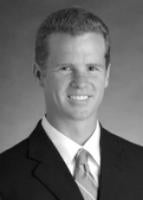The California Supreme Court has offered hope to plaintiffs facing statute of limitations problems under California’s Unfair Competition Law, holding that special rules for calculating accrual dates for so-called “continuing wrongs” can, in some cases, apply to UCL claims.
In Aryeh v. Canon Business Solutions, Inc., __ Cal. 4th __ (Jan. 24, 2103), the Supreme Court resolved a split among California’s Courts of Appeal. Some had held that the UCL’s four-year statute of limitations begins to run as soon as the last element giving rise to a claim occurs, and that common-law exceptions to that default rule, such as the continuous accrual doctrine, were categorically inapplicable to UCL claims. Others were contra. In Aryeh, the Supreme Court said that the continuous accrual doctrine might apply to UCL claims, depending on the nature of the claim.
“[T]he UCL is a chameleon,” providing remedies for a wide variety of conduct, Justice Kathryn Mickle Werdegar wrote for a unanimous Court. “Given the widely varying nature of the right invoked, it makes sense to acknowledge that a UCL claim in some circumstances might support the potential application of one or another exception … and in others might not ….” Slip op. at 11.
Plaintiff in Aryeh ran a copy business, and leased copiers from defendant Canon Business Solutions, Inc. (“Canon”). Soon after leasing the copiers, Aryeh suspected that Canon employees were running test copies during service visits, causing Aryeh to exceed his monthly allowances and incur additional fees. Aryeh filed a purported class action under the UCL, claiming that Canon’s practice of charging for test copies was both unfair and fraudulent. Aryeh alleged that the overcharges began in 2002, and acknowledged that he was aware of the practice soon thereafter, but did not sue until 2008.
The trial court found that Aryeh’s claims were time-barred, because he sued more than four years after the first violation occurred. A divided Court of Appeal affirmed. Aryeh v. Canon Business Solutions, Inc., 185 Cal.App.4th 1159 (2010).
California courts evaluating statute-of-limitations issues generally start with the “last element” rule: a cause of action accrues when the last essential element to that cause of action occurs. But courts have also developed several exceptions to that rule. These include the delayed discovery rule (which “postpones accrual of a cause of action until the plaintiff discovers, or has reason to discover, the cause of action”); fraudulent concealment (which “tolls the statute of limitations where a defendant, through deceptive conduct, has caused a claim to grow stale”); the continuing violation doctrine (which “aggregates a series of wrongs or injuries for purposes of the statute of limitations, treating the limitations period as accruing for all of them upon commission or sufferance of the last of them”); and the continuous accrual rule (under which “a series of wrongs or injuries may be viewed as each triggering its own limitations period, such that a suit for relief may be partially time-barred as to older events but timely as to those within the applicable limitations period.”). Slip. Op. at 6.
In Aryeh, the Supreme Court found that the UCL’s legislative history indicates an intent to subject UCL claims to common-law accrual rules, including the default “last element” rule. The Court also rejected a line of cases that categorically foreclosed any exceptions to that default rule -- such as the delayed discovery or continuous accrual doctrines -- in UCL claims. The Court held, rather, that those exceptions might apply to UCL claims, depending on the nature of the claim. For example, the discovery rule “should” apply to some UCL deceptive practices claims, but “might not” apply to a claim under the UCL’s unlawful prong. Slip. Op. at 10-11 (citing Broberg v. The Guadian Life Ins. Co. of America, 171 Cal.App.4th 912, 920-921 (2009) and Sea-Pac Ins. Managers, Inc., 202 Cal.App.4th 1509, 1531-32 (2012)).
Applying those principles to Aryeh’s suit, the Court declined to treat Canon’s alleged overcharges as a single continuous act, which would have permitted Aryeh to sue for all overcharges under the continuing violation doctrine (since the last overcharge occurred less than four years before Aryeh filed suit). The Court found that doctrine inapplicable because Aryeh alleged a series of “discrete, independently actionable alleged wrongs” that he noted soon after they began. The Court instead applied the continuous accrual doctrine, under which each overcharge gives rise to a separate claim, each with its own accrual date. The Court found the doctrine applicable because Canon owed a continuing duty (to not impose unfair charges) which it periodically breached (with each bill).
The Supreme Court expressed hope that its opinion would “resolve the lingering uncertainty over the timing of accrual” in UCL cases. Slip op. at 3. But by advocating a case-by-case approach, Aryeh more likely shifted the battleground: the Court may have debunked the notion of an across-the-board accrual rule applicable to all UCL cases, but attorneys will no doubt continue to disagree over which accrual rule applies to the facts of a particular case.



 />i
/>i

